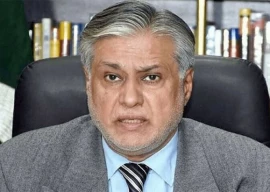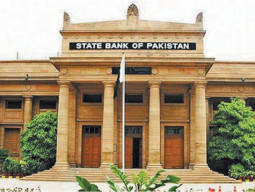
A slight change in the clause pertaining to the appointment of governors left the already under-represented region in the lurch, underscoring the need to make necessary changes in the constitution.
Govt forms high-powered panel on FATA reforms
Changed through the 18th amendment in 2010, clause 2 of article 101 lays out the criteria for the governor as follows: “A person shall not be appointed governor unless he is qualified to be elected as member of the National Assembly and is not less than 35 years of age and is a registered voter and a resident of the province concerned.”
Fata’s special status means it does not fall under any of Pakistan’s provinces. As such, all future governors would have to be appointed from anywhere but Fata until this constitutional hitch is removed.
Making matters worse, this is not only mishap Fata residents have to deal with. The region is comprised of seven tribal agencies and six frontier regions (FRs), which are governed through the archaic Frontier Crimes Regulations (FCR). Those at the helm of Fata affairs administer the region from miles away in Peshawar.
The Express Tribune interviewed Senator Hidayatullah, who hails from Bajaur Agency, to get his point of view on key Fata issues.
According to Hidayat, the 18th amendment was formulated by a bipartisan parliamentary committee which had representatives from all parties and regions. During the process, panel members from Balochistan proposed that the governor of a province be an official resident of it.
Dealing with FATA
“Everyone supported it at the time, but I think the [committee] member from Fata did not realise it would mean no one from Fata could be appointed governor,” Hidayat said.
Clauses 246 and 247 of chapter 3 of the constitution empower the president to run the affairs of Fata through a governor nominated by him. Laws framed by the National Assembly don’t apply to the region, unless the president allows it.
“Neither the Supreme Court nor a high court shall exercise any jurisdiction under the constitution in relation to a tribal area, unless Majlis-e-Shoora (Parliament) by law otherwise provides,” says the last clause mentioned in the special chapter related to Fata.
Senator Hidayat proposes a few quick administrative solutions if nothing else is in the offing to reform the outdated Fata system. “The domains of the high court and Supreme Court should at least be extended to Fata,” he said.
Currently, all judicial authority in tribal regions rest with political agents – remnants of the British Raj administrative apparatus. “An assistant political agent is the prosecutor and judge in every case. The power of appeal lies with commissioner,” he said. He suggested separating administration and judiciary at the lower level as a step forward.
Hidayat said he doesn’t attach high hopes to the government committee constituted to formulate Fata reforms. He claimed the committee has been deliberately meeting only those Fata residents who are against reform. “If they invited 600 people from my agency, only 50 to 60 were pro-change. This is deliberate,” he said.
Govt mulls FATA committee under 3-star general
He said even the reforms announced by the PPP regime in 2012 were not implemented. “People are fed up with the collective responsibility system. If one person commits a crime, the whole tribe is held accountable.”
“One of the proposals approved in the 2012 reforms was limiting collective responsibility to the paternal family of the accused,” Hidayat said. He added that the status quo in Fata currently “suits the real powers of the country” due to the region’s peculiar situation.
Contradictory health, education claims
The Bajaur Agency – where Senator Hidayat hails from – is the smallest tribal agency in terms of area. But with 461 people living per square kilometre, it is the most densely populated agency in Fata.
According to the 1998 census, 595,227 people lived the agency spanning 1,290 square kilometres. Hidayat believes the population has long since surpassed that figure and crossed the million mark.
Reports prepared by the Fata secretariat paint a rosy picture. On paper, the region has the highest schools-to-population ratio – for every 812 people, there is one primary school.
But Hidayat rubbished the figures. “In Bajaur alone, we have a total of 170,000 children enrolled in schools,” he said. “For every 280 children, there is one classroom. For every 180 students, there is one teacher.”
At the same time, he added, some areas had only 12 students in total and four or five teachers.
“The government has started a rationalisation programme to address such discrepancies,” Hidayat admitted. But he said the process was slow and resources were being wasted on bureaucratic hurdles.
The senator gave the example of some primary schools which were upgraded a decade ago but still lack teachers and other staff.
Similarly, he said, hospitals in his constituency – the towns of Nawagai, Hilal Khel, Pashat, Barang and Larkhelazo – were upgraded to ‘type D’ medical facilities years back but still lack any staff.
“There are more than 5,000 sanctioned new posts vacant for different government offices in Fata for several years… hundreds of these fall in my agency,” he said. “They need budget allocation from federal finance ministry to be filled.”
“By that time these appointments are made, the empty buildings constructed through foreign donations and different government programmes will be dilapidated and unusable,” he added.
Published in The Express Tribune, July 4th, 2016.


















COMMENTS
Comments are moderated and generally will be posted if they are on-topic and not abusive.
For more information, please see our Comments FAQ